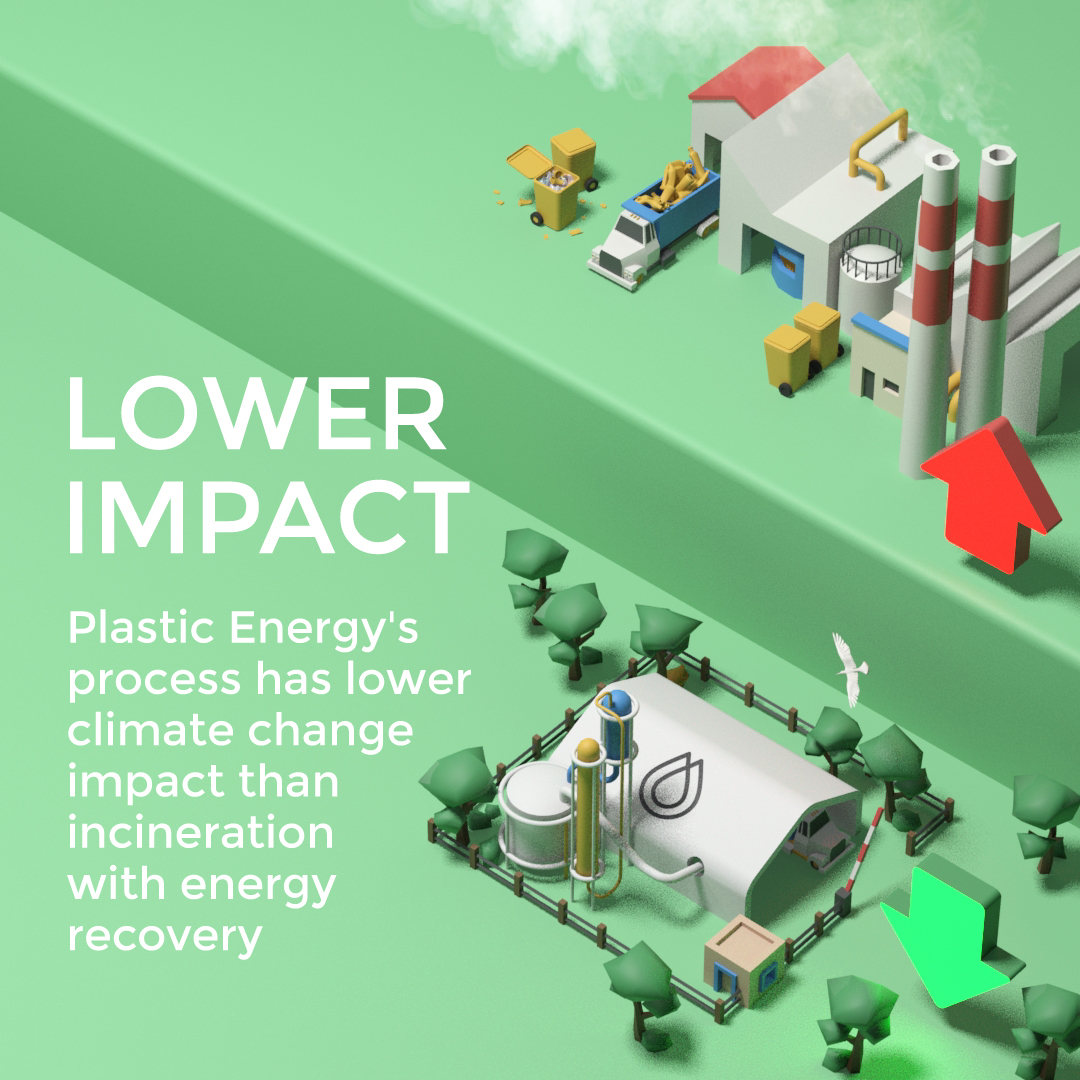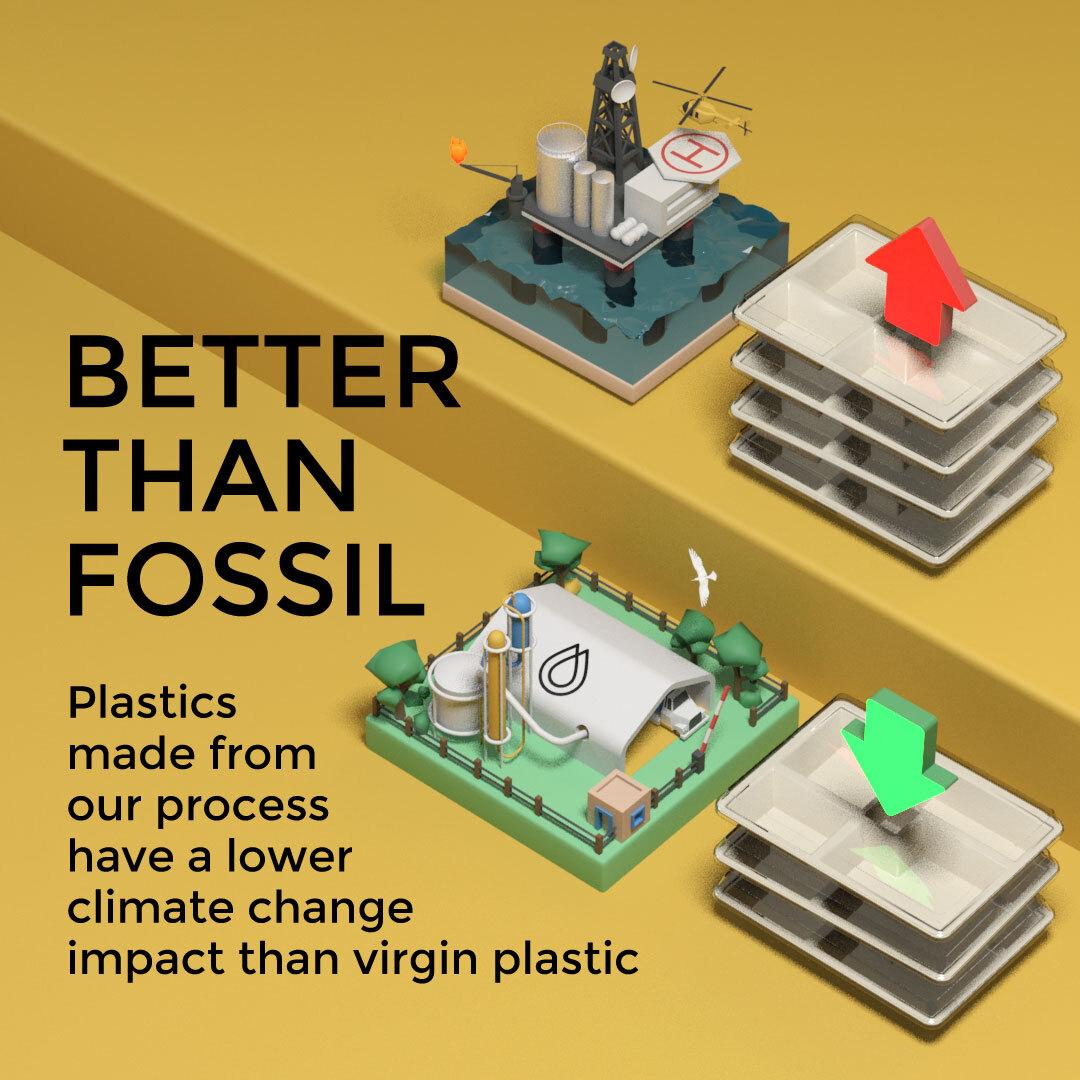Sustainability remains a top priority for Plastic Energy, and we are constantly looking for ways to improve our process and operations to ensure that they are energy efficient and have a low impact on climate change and the environment. Plastic Energy contracted independent sustainability consultancy, Quantis, to undertake a full Lifecycle Assessment (LCA) of its recycling process, which follows the ISO 14040/14044 standards. The executive summary is available to download on the link below.
A brief compilation of the key points and learnings are as follows:

Plastic Energy’s process has a considerably lower climate change impact than incineration with energy recovery.
To treat 1kg of mixed plastic waste, chemical recycling emits 0.55 kg CO2-eq, or 65% less than incineration with energy recovery. Incineration is the scenario with the highest climate change impact, as GHG emissions from plastic incineration are not fully compensated by the electricity and heat recovered in the process. Landfilling has the lowest impact on climate change, however, is the most detrimental to circularity and fossil resource use and has the most potential to pollute the environment through plastic leakage. Chemical recycling is therefore the most desirable option when compared against incineration and landfilling, which are the current alternatives for mixed plastic waste.
Plastic created following Plastic Energy’s recycling process has a lower climate change impact than virgin plastic.
To produce 1 kg of LDPE, chemical recycling emits 0.86 kg CO2-eq, or 55% less emissions than producing 1kg of plastic from fossil origin. Compared to virgin (fossil) LDPE plastic, chemically recycled LDPE has lower climate change and resources depletion scores.


Combining chemical recycling efforts with mechanical recycling efforts will greatly reduce the environmental impact of plastic.
Chemical recycling is complementary to mechanical recycling, and when used in conjunction, can be an effective and circular way to reduce the impact of plastic leakage into the environment, or being sent to landfills or incinerators. While mechanical recycling has a lower environmental impact than chemical recycling, its outputs are not of high enough quality to incorporate into food-grade packaging (with the exception of PET under certain conditions), and it faces many technical and economic challenges to be able to recycle contaminated or multi-layered plastics and films. Chemical recycling can process and recycle the plastics that mechanical recycling cannot treat, making it a complementary solution to the global plastic waste issue.
Next Steps
Plastic Energy aims to set sustainability goals for the future and to continue to develop our technology so that it will have the lowest impact on climate change and cause the least amount of harm to the environment.







